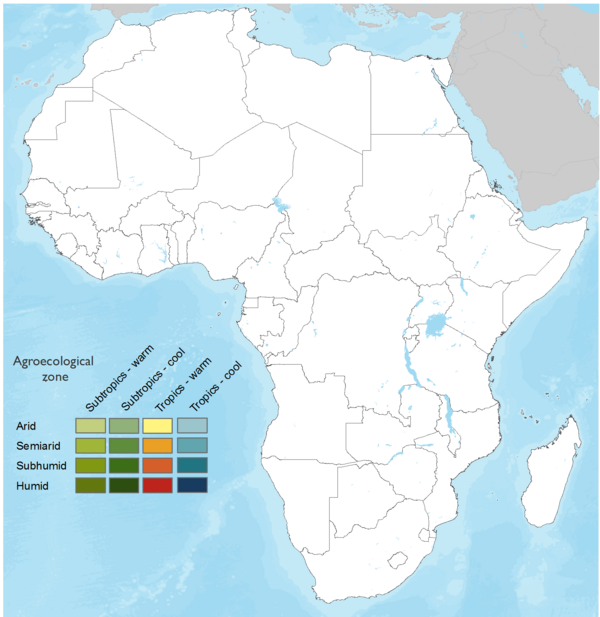

N-fixing bacteria to reduce chemical fertilizer use
Stimuplant is a specialized range of inoculants designed for various legume crops. It capitalizes on a unique symbiotic relationship between the legume plants and a beneficial bacterium known as Rhizobia. This natural partnership results in the addition of significant nitrogen levels to the soil, ranging from 40 to 150 kg per hectare.
This technology is validated.
Open source / open access
Nitrogen Limitation for Growth: Plants, especially legume crops, encounter restricted availability of nitrogen (N) in the soil, hindering their growth.
Soil Degradation from Fertilizer Reliance: Overdependence on chemical fertilizers has contributed to soil degradation over time.
Economic and Food Insecurity: The aforementioned issues collectively result in economic challenges and food insecurity for farmers.
UPL Powder Carrier Technology: Leveraging UPL powder carrier technology provides a protective shield for bacteria, safeguarding them against harsh environmental conditions like high temperatures and pH fluctuations.
CERES Organic Certification: The technology carries the prestigious CERES organic certification, ensuring compliance with rigorous organic standards.
Tailored Packaging for Smallholder Farmers: The packaging is specifically designed to suit the practical needs of smallholder farmers, enhancing accessibility and usability.
Extended Shelf Life: The powder formulation extends the shelf life of the product, offering a longer period of usability (9 months instead of 6), contributing to reduced wastage and increased efficiency.
Utilizing Rhyzobium Inoculant technology ensures economically viable and sustainable farming practices, enhancing both crop yields and soil health while reducing dependence on costly fertilizers. This fosters economic advantages and promotes efficient, eco-friendly agricultural methods.
As key partners, you require suppliers of Rhyzobium Inoculant.
The cost structure ranges from 15 to 25 USD per hectare, varying depending on the crop and country. Storage costs are minimal, given that only 100g per hectare are typically required on average. It's important to store the product between 4 and 24°C and away from pesticides.
Estimating the profitability resulting from the product's use is essential.
Adults 18 and over: Positive high
Farmers benefits directly from the Stimuplant product through cost savings on fertilizers, improved yields, and sustainable farming practices.
Others: Positive medium
Extension agents can promote the technology to support sustainable agriculture, researchers can leverage the product’s success to study soil fertility, and policymakers benefit from its alignment with environmental goals.
The poor: Positive high
Low-income farmers benefit significantly from the reduced need for costly synthetic fertilizers and improved soil fertility, which contributes to higher yields and better income opportunities.
Under 18: Positive low
While children and adolescents indirectly benefit from improved family income and food security due to better crop yields, they are not directly involved in agricultural production.
Women: Positive medium
Many women involved in smallholder or subsistence farming benefit from the reduced labor requirements and lower input costs associated with Stimuplant, which can enhance their productivity and profitabilit
Climate adaptability: Highly adaptable
The natural, symbiotic relationship fostered by the Rhizobia bacteria is more adaptable to fluctuating environmental conditions than many synthetic inputs, offering a more climate-resilient solution.
Farmer climate change readiness: Significant improvement
By ensuring consistent nitrogen availability even under stressed conditions, Stimuplant can help stabilize or improve crop yields, contributing to local food security.
Biodiversity: Positive impact on biodiversity
Stimuplant contributes to biodiversity both within the soil and on the surface. Rhizobia inoculation fosters a healthy soil microbiome, encouraging beneficial bacteria and organisms, which are essential for resilient agricultural ecosystems.
Carbon footprint: Much less carbon released
Since synthetic fertilizers are energy-intensive to produce, reducing their use through Stimuplant’s nitrogen fixation technology lowers greenhouse gas emissions associated with fertilizer manufacturing, transport, and application.
Environmental health: Greatly improves environmental health
Lower chemical input benefits surrounding ecosystems by reducing the potential for algal blooms and water contamination.
Soil quality: Improves soil health and fertility
By fostering a symbiotic relationship with Rhizobia bacteria, Stimuplant adds 40-150 kg of nitrogen per hectare.
Water use: Same amount of water used
Healthier soil structure from biological inoculants can improve water retention, making soils more resilient to droughts and reducing water needs for crops.
Scaling Readiness describes how complete a technology’s development is and its ability to be scaled. It produces a score that measures a technology’s readiness along two axes: the level of maturity of the idea itself, and the level to which the technology has been used so far.
Each axis goes from 0 to 9 where 9 is the “ready-to-scale” status. For each technology profile in the e-catalogs we have documented the scaling readiness status from evidence given by the technology providers. The e-catalogs only showcase technologies for which the scaling readiness score is at least 8 for maturity of the idea and 7 for the level of use.
The graph below represents visually the scaling readiness status for this technology, you can see the label of each level by hovering your mouse cursor on the number.
Read more about scaling readiness ›
Uncontrolled environment: validated
Common use by intended users, in the real world
| Maturity of the idea | Level of use | |||||||||
| 9 | ||||||||||
| 8 | ||||||||||
| 7 | ||||||||||
| 6 | ||||||||||
| 5 | ||||||||||
| 4 | ||||||||||
| 3 | ||||||||||
| 2 | ||||||||||
| 1 | ||||||||||
| 1 | 2 | 3 | 4 | 5 | 6 | 7 | 8 | 9 | ||
| Country | Testing ongoing | Tested | Adopted |
|---|---|---|---|
| Mozambique | –No ongoing testing | Tested | Adopted |
| South Africa | –No ongoing testing | Tested | Adopted |
| Zambia | –No ongoing testing | Tested | Adopted |
This technology can be used in the colored agro-ecological zones. Any zones shown in white are not suitable for this technology.

















| AEZ | Subtropic - warm | Subtropic - cool | Tropic - warm | Tropic - cool |
|---|---|---|---|---|
| Arid | ||||
| Semiarid | ||||
| Subhumid | ||||
| Humid |
Source: HarvestChoice/IFPRI 2009
The United Nations Sustainable Development Goals that are applicable to this technology.

Stimuplant enhances soil fertility naturally by introducing nitrogen-fixing bacteria, improving legume yields.

By promoting organic soil fertilization and sustainable farming practices, Stimuplant encourages responsible resource use and supports sustainable food production systems.

Its contribution to soil health also improves resilience to climate stresses like droughts, aiding climate adaptation in farming.

The natural nitrogen addition promotes biodiversity in the soil ecosystem and improves soil health, reducing the risk of land degradation.
Seed treatment process :
For large quantities use a concrete mixer.
For small quantities use a plastic bag as follow:
Plant directly after inoculation and drying.
Avoid planting seeds with nitrogen fertilizer for up to 8 weeks, as it can harm the nodulation process.
Also, avoid direct contact with Superphosphate during and after inoculation.
Last updated on 9 January 2026